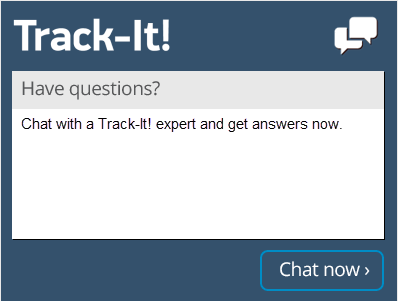What is the Purpose of a Help Desk?
What is the purpose of a help desk? There is more to an effective help desk than just fixing technical issues. Though a help desk is typically reactive in nature, responding to help desk tickets and implementing solutions, an optimal combination of excellent help desk technicians, efficient processes and robust help desk software can make a help desk more proactive and a crucial asset to your business.
The data that a help desk collects can benefit user companies in a variety of ways, including increasing the efficiency of the help desk itself, detecting potential issues with IT assets and staffing levels, and assisting with company growth. Let’s take a look at the purpose of a help desk.
The Help Desk is the Frontline for Technical Support
A well-maintained and properly staffed help desk can resolve many of the technical issues that that employees and users encounter. The combination of IT technicians’ skills and a good help desk knowledge base can fix issues ranging from password resets to the replacement of broken or defective hardware.
When the front line of the help desk cannot solve a technical issue, they can escalate the issue to a specialist, providing sufficient information that the specialist will need to handle the issue. The main purpose of a help desk is to provide end-user assistance and satisfaction composed of:
- A combination of good “soft” personal skills
- Swift resolution of technical issues
- Measures to empower users for both technical solutions and user satisfaction.
The Help Desk Can Mitigate the Damage from Disaster Recovery
Cyber-attacks, natural disasters, and deliberate physical damage can endanger a company’s data and IT assets. IT Help desks are the first department to respond to these high-severity technical crises. In addition to the measures that they typically employ, help desk technicians can provide valuable insights for a company’s disaster recovery plans and guidelines.
A fully utilized IT help desk can save a company millions of dollars and weeks of time by helping supply valuable data and information for implementing disaster recovery plans.
Empower Users by Making them Active Participants in Technical Troubleshooting
When a user or employee can competently resolve a technical issue by themselves, a result can be a decrease in lost time and money. Help desks and their supplementary software can create and update self-service portals which users can access.
These self-service portals can contain a knowledge base with FAQs, step-by-step instructions, and similar technical documents that users can search, browse, or download to answer their questions and handle a variety of basic technical issues.
Self-service portals can also enable users to create help desk tickets via an online form. Help desks can make themselves even more accessible to less technically inclined users by implementing functionality that converts users’ emails into help desk tickets automatically.
Identify Trends and Potential Problems
The data from help desk tickets are highly valuable both to the help desk and to the company for which they provide service. With the right help desk software, help desks can create and even automate reports which they can distribute to other company departments.
Reports from help desks can identify IT assets that require updates or replacements, provide compelling arguments for hiring staff, suggest subjects for training classes, and determine the least-disruptive times for routine maintenance and applications of non-critical software patches.
Use Help Desk Software to Secure IT Assets
Top tier help desks create and maintain thorough inventories of their user company’s IT assets. This is usually done through a combination of network scans and proper purchase tracking. Barcoding all hardware assets is also a common method for taking physical inventory of all of your assets. A comprehensive inventory of hardware, software, and related technology allows the help desk to anticipate problems, react to security alerts, and implement changes like software updates, upgrades, patches, and other software deployments directly or even remotely. An accurate and up to date IT Asset inventory is also vital for auditing efforts and proving compliance with laws, regulations, and other guidelines.
The Help Desk Reinforces Compliance to Laws, Regulations, and Policies
Companies are subject to both external laws as well as their own internal regulations and policies. A top tier help desk can assist with the implementation and enforcement of these rules. Help desks that maintain a current inventory of IT assets can lower the time and hassles associated with internal and external audits. Help desks can enforce technical rules and restrictions such as password complexity, security access levels, remote access regulations, and network usage. Help desk software that collects thorough and complete data can be an essential component of legal issues such as arbitration or civil court trials.
Help Desk Software Reduces Company Overhead
Top-tier help desk teams should strive to resolve help desk tickets on the first try. The right help desk software can help by providing tools that technicians can use to research solutions and and historical tickets to find the right resolution. Help desks can also try to avoid calls altogether by providing self service and knowledge base resources for end users who wish to try to resolve their own problems.
Measures like these increase the efficiency of users and technicians as well as help reduce downtime associated with technical issues. The time and money saved by avoiding preventable issues or resolving issues quickly can be rerouted to other projects or areas, such as advertising, training, or research and development.
The Help Desk Maintains Technical Support for Remote Workers
The increase in remote workers who work from home has introduced many technical and logistical complications. In many cases help desk teams have had to establish and maintain policies to help reduce the technical complications and security risks associated with remote work.
The help desk may even install and maintain additional IT assets that remote workers will need to perform their tasks safely and effectively such as VPNs (Virtual Private Networks), privilege management and monitoring tools and patching tools to be sure systems are up to date on all software and antivirus definitions. The help desk must ensure that patches and software updates are applied to remote workers’ computers regardless of workers’ periods of activity.
The Help Desk Should Have a Calming Influence
“Soft” skills are as vital as IT knowledge – if not more so – to help desk staff manage communication with end users. Since help desks are reactive in nature, they often respond to users who are angry, upset, or worried due to the technical issues that they are facing. Whether the technical problem is as catastrophic as a database failure or security breach or as minor as a forgotten password, a top tier help desk person can carefully listen, reassure, inform, calm, and satisfy its users by employing techniques including active listening, exhibiting empathy, maintaining constant and respectful communications, resolving issues on the first attempt if possible and keeping up with promised follow ups when needed.
The Help Desk Team Assists with the Growth of Their Users
As companies increase in size and the number of their users (internal or external) increase, they will face a variety of challenges and complications associated with that growth. The help desk can be a vital asset during these growth periods due to the data they have collected and the technical experience they possess.
A help desk with a firm grasp of their business can provide valuable insights regarding staffing considerations and additional IT assets necessary to accommodate growth. The help desk can also be a valuable participant in the formation of a service desk, which can handle technical issues proactively as opposed to the more reactive nature of a typical help desk.
The Help Desk Can Introduce Technical Enhancements
Many help desk platforms provide functionality that benefits other departments in addition to the help desk. One example of such functionality is automated jobs, which can perform hands-free tasks at specified intervals such as report generation, routing of tickets, sending email notifications, and issuing reminders to follow up on tasks.
Help desk software software can also be valuable to HR departments because of their data pertaining to employee activity. HR departments can look for opportunities to provide training for employees based on help desk ticket data. In some cases HR departments use the help desk ticketing system themselves to keep track of all of their tasks. This ensures any important employee related tasks are tracked, recorded and responded to in a timely fashion.
An External-Facing Help Desk Acts as a Liaison Between Its Company and Customers
Help desks that are designed to interact with external customers can have a powerful influence on how the external customer views the overall company. Customers with positive help desk experiences are more likely to post positive online reviews, turn to the company for future needs for its products or services, and recommend the company to friends and family.
Conversely, customers who feel mistreated or aggravated by a company’s help desk are likely to respond with negative reviews and related media, which can have negative consequences ranging from lost customers and leads to public ridicule and legal repercussions. Because of these high stakes, a top-tier help desk with strong interpersonal skills is even more important when dealing with external customers. Hopefully this information has helped in your understanding of the main purpose of a help desk.





